
Self
Would have one of the masters of Brazilian cinema always made the same film? From an encounter with documentarian Eduardo Coutinho recorded in 2012 and a vast amount of archive footage, this film offers a general look at Coutinho's work and testifies how the filmmaker’s thinking still stand the test of time to this day and age.

A documentary on Cosme Alves Netto (1937-1996), former head of the Cinematheque of the Museum of Modern Arts at Rio de Janeiro.

How much theatricality is there in an interview-based documentary? On one side, someone answers. On the other side, someone asks questions – usually away from the camera eyes. But what would happen if also filmed the interviewers? And if the respondent also had the right to ask? And if the parties never met? What if instead of a glimpse into someone’s life, we had several? ‘Seven visits’ is a film about questions. And about the act of being interested in the other.

Director
Made from interviews with young Brazilian students by filmmaker Eduardo Coutinho before his death (in February 2014), the film seeks to understand how teenagers think, live and dream nowadays. The footage was edited by Coutinho’s longtime partner, film editor Jordana Berg, and the final cut is signed by João Moreira Salles.

Made from interviews with young Brazilian students by filmmaker Eduardo Coutinho before his death (in February 2014), the film seeks to understand how teenagers think, live and dream nowadays. The footage was edited by Coutinho’s longtime partner, film editor Jordana Berg, and the final cut is signed by João Moreira Salles.

Director
In January 2013, Eduardo Coutinho back to Pernambuco to rediscover two of the characters in "Twenty Years Later" (1984): Cicero and João José.

Director
After an initial meeting in 1964 interrupted by military dictatorship and a new meeting in the early 1980s to end the film "Twenty Years Later", Eduardo Coutinho once again find Elizabeth Teixeira, survivor of peasant struggles.

Himself
A conversation with Brazilian documentary filmmaker Eduardo Coutinho about his work and methods.

Writer
Simple, emotionally compelling documentary that delves into the songs that hold meaning in people's lives. It is composed of 18 sessions where the director engages his subjects in conversation about the song they picked. The end product is deeply personal stories about music and its intimate connection to memory, love, loss, self-discovery, regret, death, and life.

Director
Simple, emotionally compelling documentary that delves into the songs that hold meaning in people's lives. It is composed of 18 sessions where the director engages his subjects in conversation about the song they picked. The end product is deeply personal stories about music and its intimate connection to memory, love, loss, self-discovery, regret, death, and life.

Self
Short documentary about a woman known from a film by Eduardo Coutinho.

Editor
The documentary tracks 19 hours of broadcasting from several brazilian TV channels making live surfing between channels. The result was edited latter.

Writer
The documentary tracks 19 hours of broadcasting from several brazilian TV channels making live surfing between channels. The result was edited latter.

Director
The documentary tracks 19 hours of broadcasting from several brazilian TV channels making live surfing between channels. The result was edited latter.

Director
Continuing the exploration of the thin line between truth and performance, Eduardo Coutinho turns his attention to the drama generated during rehearsals for the Galpão Theater Company’s performance of Chekov’s The Three Sisters. As he shoots scenes from the play, Coutinho attempts to capture the very moment in which reality becomes fiction and vice versa—whether through the actors’ bodies and words or in backstage scenes of a performance that will exist only on film.

The audience follows the creative process of the filmmaker Eduardo Coutinho in the documentary, from the research phase until the end of the filming of "Master, a Building in Copacabana".

Himself
From cinema-verite; pioneers Albert Maysles and Joan Churchill to maverick movie makers like Errol Morris, Werner Herzog and Nick Broomfield, the world's best documentarians reflect upon the unique power of their genre. Capturing Reality explores the complex creative process that goes into making non-fiction films. Deftly charting the documentarian's journey, it poses the question: can film capture reality?
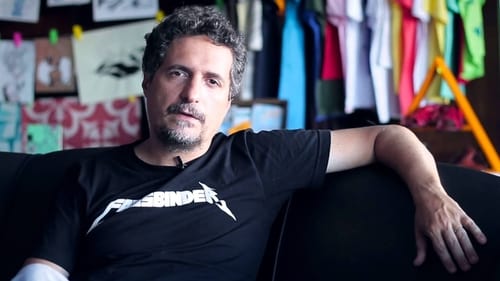
Self
Seventy critics and filmmakers discuss cinema around the conflict between the artist and the observer, the creator and the critic. Between 1998 and 2007, Kléber Mendonça Filho recorded testimonies about this relationship in Brazil, the United States and Europe, based on his experience as a critic.
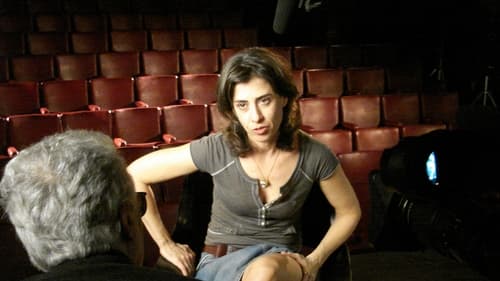
Screenplay
Following a newspaper ad, ordinary women tell part of their life stories to director Eduardo Coutinho, which are then re-enacted by actresses, blurring the barriers between truth, fiction and interpretation.

Director
Following a newspaper ad, ordinary women tell part of their life stories to director Eduardo Coutinho, which are then re-enacted by actresses, blurring the barriers between truth, fiction and interpretation.
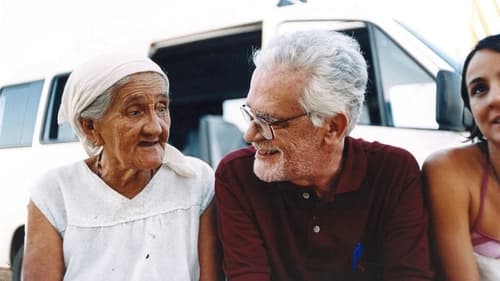
Associate Producer
A film that began from zero. Without any previous research, characters, locations or established themes, a film crew arrives at the Paraiba backlands in search of people with stories to tell. In the town of São João do Rio Peixe, they discover the Araçás Farm, a rural community where 86 families live, the majority connected by family ties. Thanks to the mediation of a young woman from Araçás, the residents – consisting mostly of elderly people – tell their life stories, marked by popular Catholicism, hierarchy, a sense of family and honor. A world on the verge of disappearing.

Director
A film that began from zero. Without any previous research, characters, locations or established themes, a film crew arrives at the Paraiba backlands in search of people with stories to tell. In the town of São João do Rio Peixe, they discover the Araçás Farm, a rural community where 86 families live, the majority connected by family ties. Thanks to the mediation of a young woman from Araçás, the residents – consisting mostly of elderly people – tell their life stories, marked by popular Catholicism, hierarchy, a sense of family and honor. A world on the verge of disappearing.
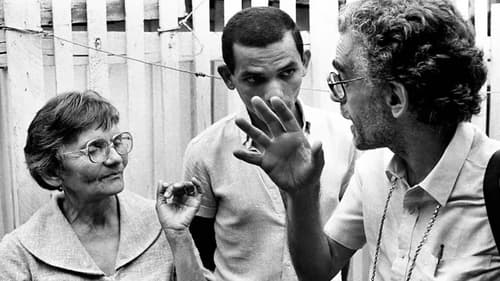
Director
In 1979 and 1980, workers in São Paulo’s metallurgical industry organized a series of strikes that changed the face of union politics in Brazil. In the process, they established the groundwork for Brazil’s Worker’s Party and brought to the national spotlight union leader Luís Inácio Lula da Silva. Metalworkers is a feature-length documentary about the stories of 21 of these workers who took part in these historic strikes but remain in relative anonymity today.

Screenplay
"Master" is the name of a 12-story apartment building in Copacabana, Rio de Janeiro's neighborhood for nightlife. Over the course of four weeks in 2001, Eduardo Coutinho's film crew rented one of the 276 apartments and used it as home base to make a film about the building's residents. We get to know the building manager, who succeeded in turning the troubled residence into a family complex within just a few years. Using interviews and a few stolen moments in the corridors of the building, Coutinho explores this world. Most of the building's residents come from the lower middle class and are just getting by, but that's just about the only thing they have in common - so many people, so many stories, sometimes told in a self-confident tone, sometimes with averted eyes. The fact that a film crew is interested in their stories puzzles some of them. Hope, fear, dreams, memories, love and loneliness all appear from behind the doors of this average apartment building.

Director
"Master" is the name of a 12-story apartment building in Copacabana, Rio de Janeiro's neighborhood for nightlife. Over the course of four weeks in 2001, Eduardo Coutinho's film crew rented one of the 276 apartments and used it as home base to make a film about the building's residents. We get to know the building manager, who succeeded in turning the troubled residence into a family complex within just a few years. Using interviews and a few stolen moments in the corridors of the building, Coutinho explores this world. Most of the building's residents come from the lower middle class and are just getting by, but that's just about the only thing they have in common - so many people, so many stories, sometimes told in a self-confident tone, sometimes with averted eyes. The fact that a film crew is interested in their stories puzzles some of them. Hope, fear, dreams, memories, love and loneliness all appear from behind the doors of this average apartment building.

Juiz
A story inspired by the life of one of the most remarkable figures in Brazilian popular culture, João Francisco dos Santos (1900-1976). In turn, bandit, transvestite, street fighter, brothel cook, convict and father to seven adopted children, dos Santos – better known as Madame Satã – was also a notorious gay performer who pushed social boundaries in a volatile time.

Consulting Producer
The visits of Brazilian sanitarist Oswaldo Cruz to Amazon in early 20th century.

Self
Documentary on poor people living in a slum in Rio de Janeiro, on the occasion of New Year's Eve of 1999.

Director
Documentary on poor people living in a slum in Rio de Janeiro, on the occasion of New Year's Eve of 1999.

Director
Programa do Ratinho DNA test played by the members of Instituto Philippe Pinel and filmed by Eduardo Coutinho.

Screenplay
The film tells the story of an intuitive, adventurous man who loved his country and being Brazilian. This man fought to be loyal to himself. His music is a transparent portrait of his genius, intuition, freedom, adventure and passion for Brazil.

Writer
An overview of brazilian spirituality and religions.

Director
An overview of brazilian spirituality and religions.

Director
Stimulated by sketches in which young actors improvise about situations related to AIDS and Sexually Transmitted Diseases (STDs), students from a public school in Rio de Janeiro and teenagers from the Zona Sul and the Baixada Fluminense debate these themes. This video was made by CECIP for the Adolescence and STD / AIDS Project, with the support of the Ministry of Health's National STD / AIDS Control Program.

Director
Three stories of female action in social movements, close in their struggle but distant in the geographical space: the Jardim Uchôa Residents Association, in Recife; the Rancho Fundo Residents Association, in Rio de Janeiro; and the Popular Legal Prosecutors group in Bom Jesus, Porto Alegre.

Director
Six stories of children and adolescents who had their rights violated, and the reality of the Rights Councils and Guardianship Councils (newly created in 1995) of two Brazilian cities, Blumenau and Belo Horizonte.

Director
The documentary follows a truck of pilgrims on their pilgrimage from Fernandes, in the municipality of Arapiraca, in Alagoas, to Juazeiro - a journey of 700 km covered in 16 hours. Testimonies of former pilgrims and their descendants established in Juazeiro, today a commercial center with 180 thousand inhabitants, outline the historical and legendary profile of Father Cícero.

Writer

Director
In this documentary Coutinho examines the plight of the people who live off the waste of the Brazilian cities. These people make their living by scavenging the immense urban garbage dumps searching for whatever they can find to sell as well as whatever they can find to eat.

Director
Medium length film on environmental protection in the 1988 Brazilian Constitution.
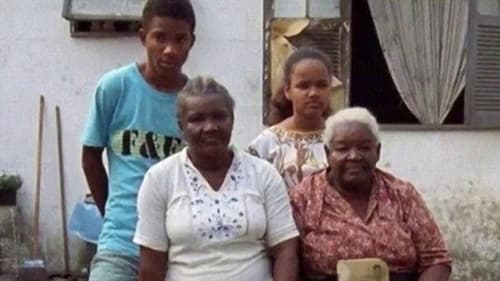
Director
A panorama of the Brazilian black experience, starting with the figure of the semi-illiterate popular artist and employee of a salt mine Gabriel Joaquim dos Santos.

Director
Documentary about the Latin American foreign debt, made in five blocks that cover everything from a brief history of debt to some possible alternatives for a solution, passing through the description of its mechanisms, its most serious crises and its social consequences.

Director
In the late 1970s, the labor movement began to gain strength. In 1988, the workers of the National Steel Company (CSN) in the city of Volta Redonda decreed a great strike. Military intervention is immediate; repression kills three young workers and injures dozens.

Director
The daily life in a shantytown in the north part of Rio de Janeiro, with 10,000 people living in bad conditions, their problems and the issue of police violence.

Producer
Eduardo Coutinho was filming a movie with the same name in the Northeast of Brazil, in 1964, when there came the military coup. He had to interrupt the project, and came back to it in 1981, looking for the same places and people, showing what had ocurred since then, and trying to gather a family whose patriarch, a political leader fighting for rights of country people, had been murdered.

Himself
Eduardo Coutinho was filming a movie with the same name in the Northeast of Brazil, in 1964, when there came the military coup. He had to interrupt the project, and came back to it in 1981, looking for the same places and people, showing what had ocurred since then, and trying to gather a family whose patriarch, a political leader fighting for rights of country people, had been murdered.

Writer
Eduardo Coutinho was filming a movie with the same name in the Northeast of Brazil, in 1964, when there came the military coup. He had to interrupt the project, and came back to it in 1981, looking for the same places and people, showing what had ocurred since then, and trying to gather a family whose patriarch, a political leader fighting for rights of country people, had been murdered.

Director
Eduardo Coutinho was filming a movie with the same name in the Northeast of Brazil, in 1964, when there came the military coup. He had to interrupt the project, and came back to it in 1981, looking for the same places and people, showing what had ocurred since then, and trying to gather a family whose patriarch, a political leader fighting for rights of country people, had been murdered.

Writer
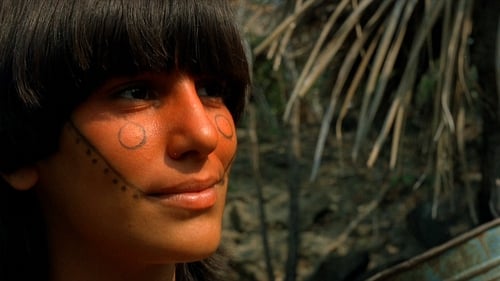
Co-Writer
A military man picks up a Native Brazilian woman and heads to a gold panning site where he has undisclosed business to attend to.

Director
Produced for Globo Repórter, a documentary by Eduardo Coutinho about the master Brazilian painter Cândido Portinari.

Director
Exu, Uma Tragédia Sertaneja, aired on January 16, 1979, portrayed the fight between the Sampaio and Alencar families, in the Pernambuco city of Exu, which had dragged on since 1949 with violent deaths side by side. Shown as a Globo Repórter Documento, directed by Eduardo Coutinho, it featured testimonies by singer and composer Luiz Gonzaga, born in Exu, and members of both families. Even a federal intervention was suggested to end the conflict.

Director
Theodoro Bezerra is a member of the Brazilian elite, a farmer and politician since the 1940s who has been elected as a state congressman by the state of Rio Grande do Norte. He concentrates on his own characteristics as a popular leader, despite being sexist and elitist, as well as using public funds for personal causes.

Director
A documentary by Eduardo Coutinho about a hired-gun from Brazil's Northeast.

Screenplay
In a small city of Brazil, Flor, a cooking teacher, marries Vadinho, a very handsome and erotic man. Once married she finds he is a good-for-nothing who takes all her money to gamble. After his death, Flor misses the goods of the marriage so she marries again with a very correct gentleman - the owner of a drugstore. Now she's very happy with her man, but misses the erotic moments with her previous husband. One day, Vadinho comes back as a ghost to quench her desires.

Director
In June 1976, Eduardo Coutinho and film reporter Mário Ferreira traveled to the northeastern backlands to record the documentary Superstição. The film revealed the customs, legends, and beliefs of the country people.

Writer
Early documentary by Eduardo Coutinho dealing with the water shortage in the city of Ouricuri in the seventies.

Director
Early documentary by Eduardo Coutinho dealing with the water shortage in the city of Ouricuri in the seventies.

Screenplay
A German governess is hired to give German and piano lessons to the teenager son of a rich traditional family, in the 20s. But soon they get involved, and she teaches him love lessons instead.

Screenplay
In São Paulo, during the 1920s, a woman who is loved by a telegraphist and seduced by a slacker ends up in prostitution.

This film shows people with constant psychological and social conflicts: the violence among outlaws, conflicts between man and woman, police and society.

Music
A gang of bandits led by Faustão intervene in a fight between two members of rival families, the Pereiras and the Araújos. Henrique Pereira, son of Colonel Pereira, is wounded in an ambush. Faustão rescues him and demands the father to pay a ransom in exchange for the life of his son. The bandit makes it clear to Henrique that he is not a prisoner and that he is only obeying the law of the backlands. Lucena, a henchman working for the Araújos, finds Faustão and offers twice the amount being asked to the colonel in order to take Henrique as a prisoner, but the bandit refuses the offer. Colonel Henrique pays the ransom, but the son refuses to return home, even being aware of the feud between his family and the Araújos. The young man chooses to join the gang.

Story
A gang of bandits led by Faustão intervene in a fight between two members of rival families, the Pereiras and the Araújos. Henrique Pereira, son of Colonel Pereira, is wounded in an ambush. Faustão rescues him and demands the father to pay a ransom in exchange for the life of his son. The bandit makes it clear to Henrique that he is not a prisoner and that he is only obeying the law of the backlands. Lucena, a henchman working for the Araújos, finds Faustão and offers twice the amount being asked to the colonel in order to take Henrique as a prisoner, but the bandit refuses the offer. Colonel Henrique pays the ransom, but the son refuses to return home, even being aware of the feud between his family and the Araújos. The young man chooses to join the gang.

Screenplay
A gang of bandits led by Faustão intervene in a fight between two members of rival families, the Pereiras and the Araújos. Henrique Pereira, son of Colonel Pereira, is wounded in an ambush. Faustão rescues him and demands the father to pay a ransom in exchange for the life of his son. The bandit makes it clear to Henrique that he is not a prisoner and that he is only obeying the law of the backlands. Lucena, a henchman working for the Araújos, finds Faustão and offers twice the amount being asked to the colonel in order to take Henrique as a prisoner, but the bandit refuses the offer. Colonel Henrique pays the ransom, but the son refuses to return home, even being aware of the feud between his family and the Araújos. The young man chooses to join the gang.

Director
A gang of bandits led by Faustão intervene in a fight between two members of rival families, the Pereiras and the Araújos. Henrique Pereira, son of Colonel Pereira, is wounded in an ambush. Faustão rescues him and demands the father to pay a ransom in exchange for the life of his son. The bandit makes it clear to Henrique that he is not a prisoner and that he is only obeying the law of the backlands. Lucena, a henchman working for the Araújos, finds Faustão and offers twice the amount being asked to the colonel in order to take Henrique as a prisoner, but the bandit refuses the offer. Colonel Henrique pays the ransom, but the son refuses to return home, even being aware of the feud between his family and the Araújos. The young man chooses to join the gang.

Writer
In a fictitious country, civil servant receives the greatest inheritance in history (ten trillion dollars) and is confined by authorities because he could break world economics. But he manages to escape.

Director
In a fictitious country, civil servant receives the greatest inheritance in history (ten trillion dollars) and is confined by authorities because he could break world economics. But he manages to escape.

Director
Film that includes three short films by different authors about love: "O pacto" by Eduardo Coutinho, "Terrible Night" by Rodolfo Kuhn, and "Magic World" by Helvio Soto.

Chronicles the life of a 17 year-old girl living in the upper-class Rio de Janeiro neighbourhood of Ipanema. Márcia lives a life of parties and spend her days among bohemians, musicians and intellectuals. While seeming happy in the outside, she's extremely anguished inside. Based on the famous song by Antonio Carlos Jobim and Vinicius de Moraes.

Story
Chronicles the life of a 17 year-old girl living in the upper-class Rio de Janeiro neighbourhood of Ipanema. Márcia lives a life of parties and spend her days among bohemians, musicians and intellectuals. While seeming happy in the outside, she's extremely anguished inside. Based on the famous song by Antonio Carlos Jobim and Vinicius de Moraes.

Screenplay
Chronicles the life of a 17 year-old girl living in the upper-class Rio de Janeiro neighbourhood of Ipanema. Márcia lives a life of parties and spend her days among bohemians, musicians and intellectuals. While seeming happy in the outside, she's extremely anguished inside. Based on the famous song by Antonio Carlos Jobim and Vinicius de Moraes.
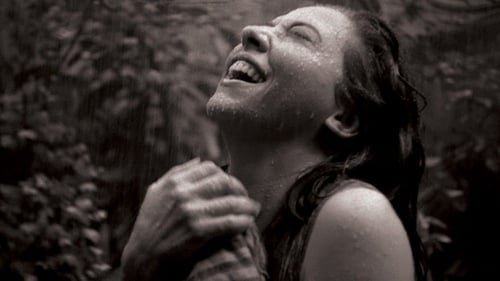
Writer
After visiting a fortune teller, Zulmira is informed that a blonde woman will threaten her peace. After talking to her husband Toninho, she suspects that her cousin Glorinha may be that blonde. In poor health, Zulmira makes all the preparations for the day of her death and asks her unemployed husband to deal with the costs of the coffin and funeral with a man named João Guimarães Pimentel. What Tom doesn't know is that Zulmira and this man hide some secrets that he could never imagine.
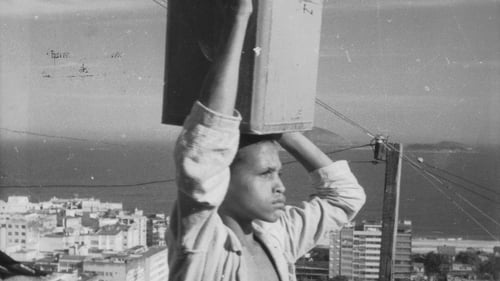
Production Manager
Five segments about the hardships faced by people living in slums on hills in Rio de Janeiro.

Director
Made during the time Eduardo Coutinho was studying cinema at the Institut des Hautes Études Cinématographiques (Idhec), in the French capital, the fictional short film shows a man (Elie Presman) who tries to make a marriage proposal, but is constantly interrupted by calls phone calls that his girlfriend (Irene Chabrier) insists on answering.




























